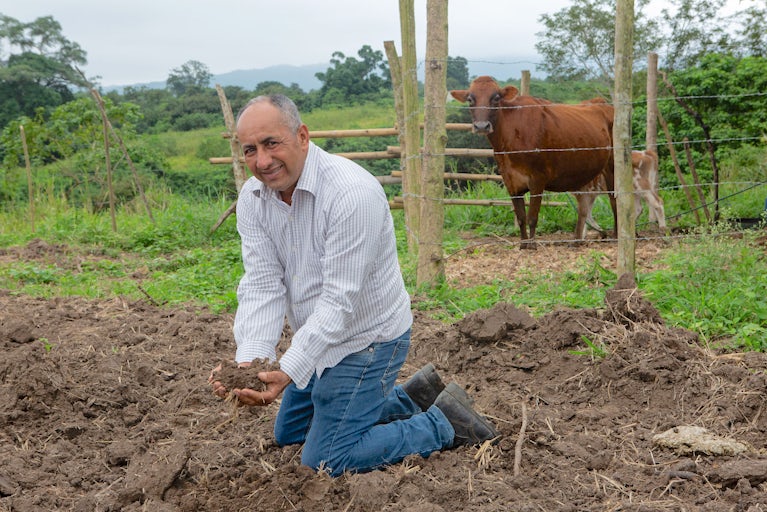
What Is a Sustainable Food System?
By Heifer International | October 29, 2025
November 17, 2025
Consider the food on your table, a reflection of the earth’s gifts and the farmers who coax life from soil and sun. Each meal represents a passage through seasons and hands, woven together into a global food system that feeds billions of people every year.
Yet this network grows increasingly fragile under the weight of climate threats, limited infrastructure and other pressures that strain its ability to meet rising demand. The future of food depends on sustainable agriculture, and farmers remain its backbone.
This Thanksgiving, from poultry keepers in Ethiopia to fish farmers in Cambodia, we celebrate those whose daily work feeds the world and reminds us that gratitude begins in the field.
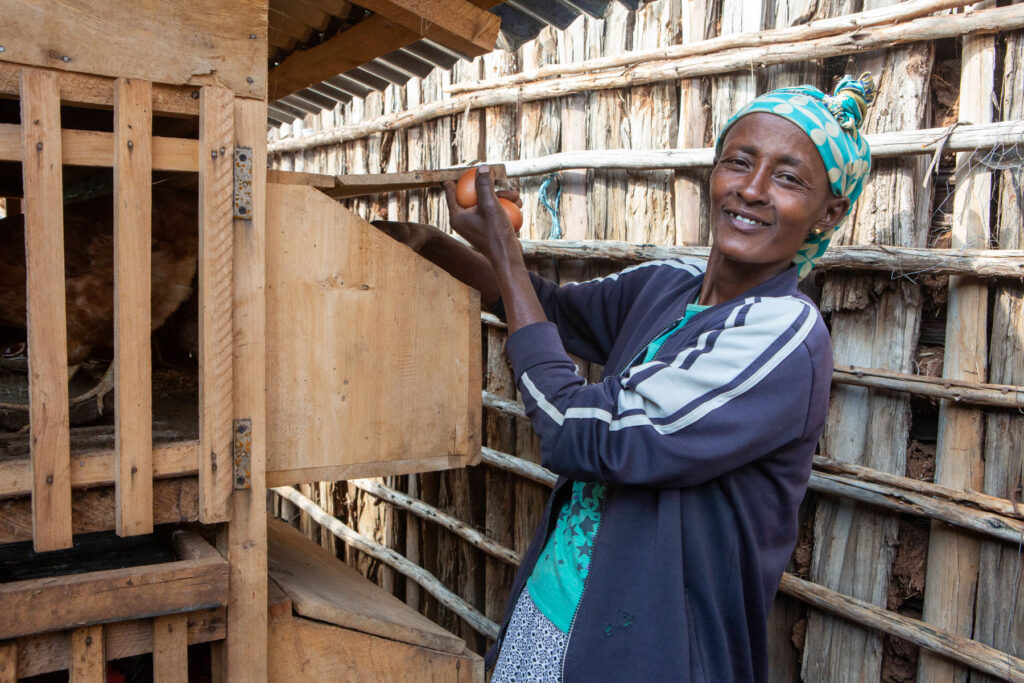
In Ethiopia’s Gurage Zone, Genet Lametu collects eggs from her hens. Once limited by high feed costs and traditional rearing methods, she joined Heifer’s Enhancing Livelihoods of Smallholders through Improved Poultry Business project and received 30 chicks.
With better housing, hygiene and feed, her flock now lays about 30 eggs a day, enough to nourish her family and sell for income. “Now from the money I make, I am able to send my kids to private schools where they can be well educated,” Genet said. Her success now inspires other farmers to see what is possible with persistence and care.

In Alta Verapaz, Guatemala, Arnoldo Teyul stands among cardamom plants that rise beneath a canopy of native trees, part of a diverse agroforestry system that intertwines crops with conservation. Through Heifer’s Green Business Belt Signature Program, he and fellow farmers grow high-value spices while protecting more than 4,700 acres of forest.
The shade-grown cardamom he tends now supports both income and ecological balance for the communities that rely on it.
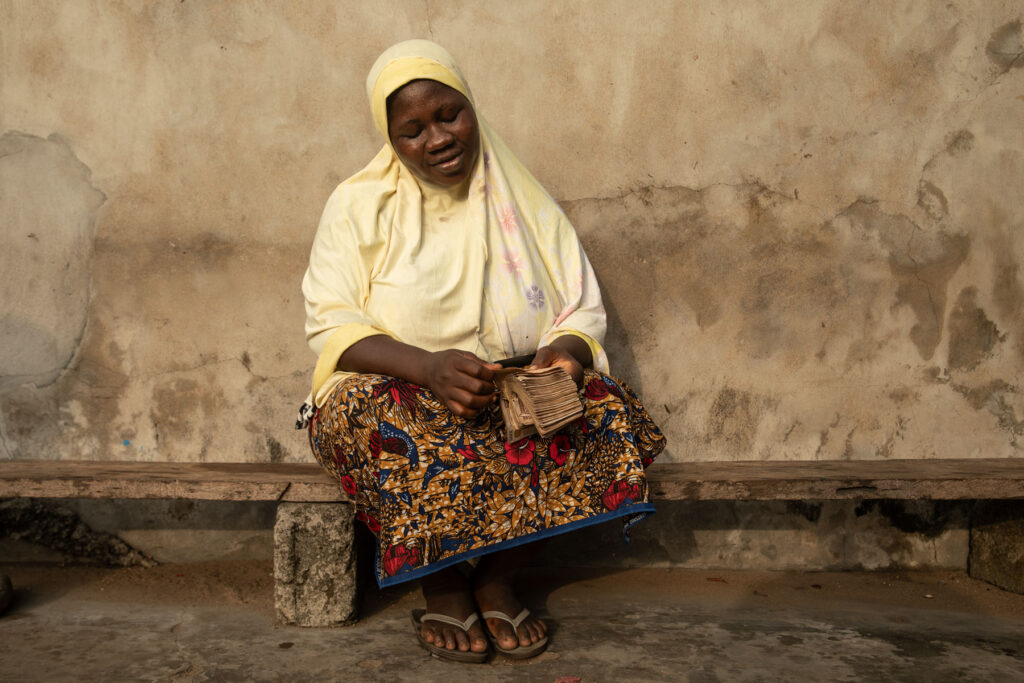
In Dadi Louis, a farming community in southern Nigeria, 27-year-old Ashiata Akanbi builds a steadier livelihood through her tomato harvests. For years, she relied on moneylenders who charged 50 percent interest and kept her in debt.
Through Heifer’s Naija Unlock program, she secured a loan for seeds, fertilizer and drip irrigation, which gave her control over her income and confidence in her farming. Access to finance now gives her the chance to grow her business on her own terms.
“I’m a female. I can do more, do better,” she said. “What a man can do, a woman can do better.”
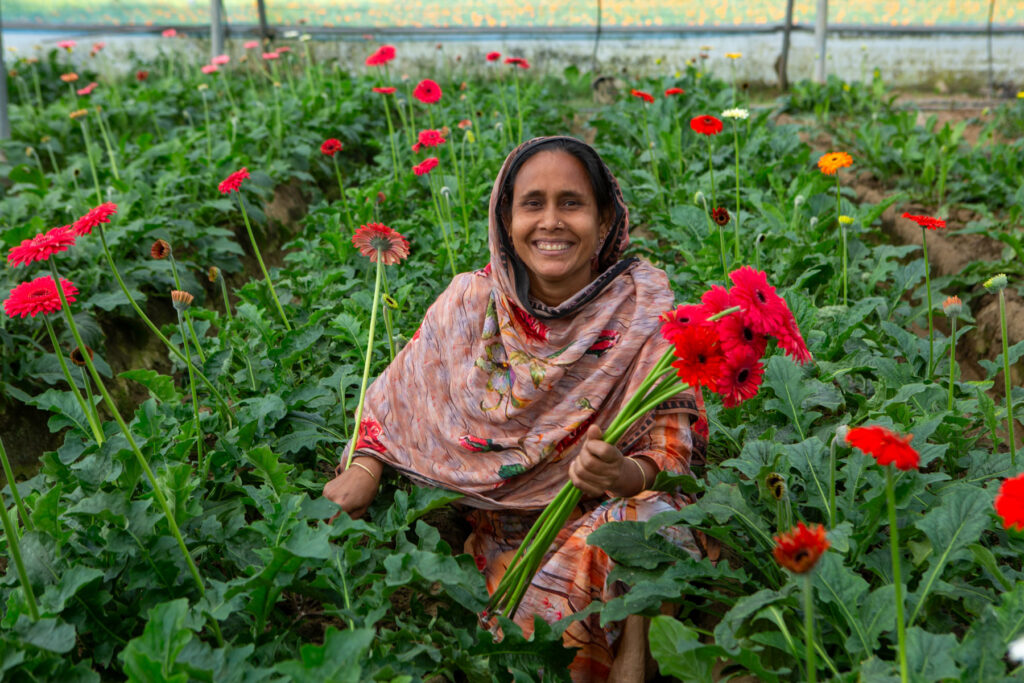
In Haria village, Bangladesh, 44-year-old Sajeda Begum kneels among rows of red flowers, her hands full of blooms bound for the local market. Inside her greenhouse, the air stands as a quiet shield against unpredictable weather that often destroys open-field crops.
She is one of thousands of women building a secure future through Heifer’s Strengthening Climate-Smart Vegetable and Flower Value Chain project. Across the Jashore region, farmers like her use solar-powered irrigation and climate-smart methods to grow both beauty and stability for their families.
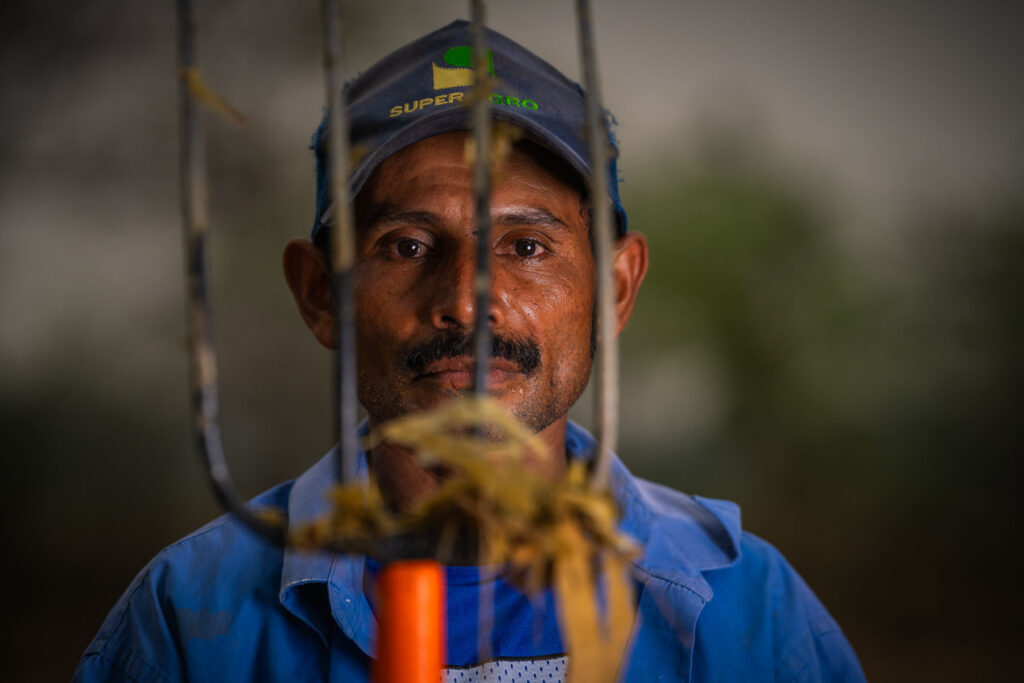
As dusk approaches in Olancho, Honduras, Alexis Ortiz gathers freshly cut forage and stores it as feed for cattle when grass grows scarce. The reserved feed helps keep the herd healthy and maintain stable milk production during the dry months.
Alexis works at Finca San Manuel, a model dairy farm established by local producers to demonstrate sustainable methods and strengthen the country’s milk supply. The farm operates with support from Heifer’s Leveraging Success project, which advances Honduras’ dairy value chain through regenerative, low-carbon farming practices.
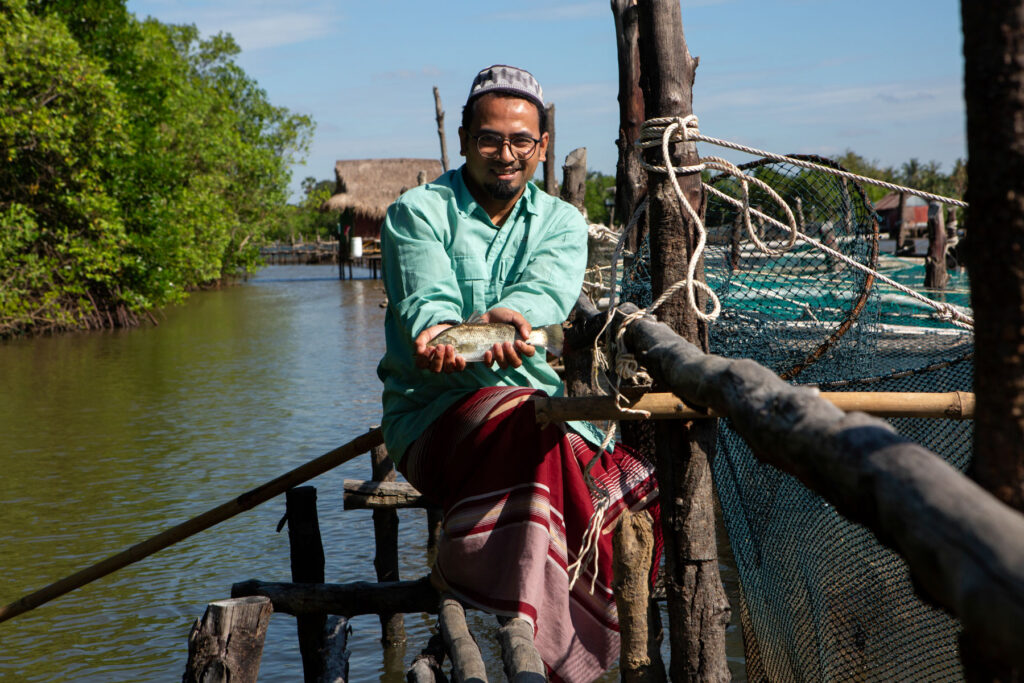
Along a coastal waterway off the Gulf of Thailand in Cambodia, Sab Kasim tends to large mesh enclosures where he raises Asian sea bass. Once reliant on unpredictable tides and borrowed boats, he now raises fish year-round as a steady source of food and income for his family.
Through Heifer’s Consortium for Sustainable Alternative and Voice for Economic Development project, Sab learned to manage feed, care for young fish and harvest his sea bass crop responsibly. These new skills help him raise more fish and earn fairer prices.
“After Heifer came and taught us how to breed fish like this, I have income, and I can earn. I have a daily job to do,” he said.
Cart is empty
Success!
Please be patient while we send you to a confirmation page.
We are unable to process your request. Please try again, or view common solutions on our help page. You can also contact our Donor Services team at 855.9HUNGER (855.948.6437).
Covering the transaction fee helps offset processing and administrative fees that we incur through taking payments online. Covering the transaction fee for each payment helps offset processing and administrative fees that we incur through taking payments online. Covering the transaction fee for each payment helps offset processing and administrative fees that we incur through taking payments online.